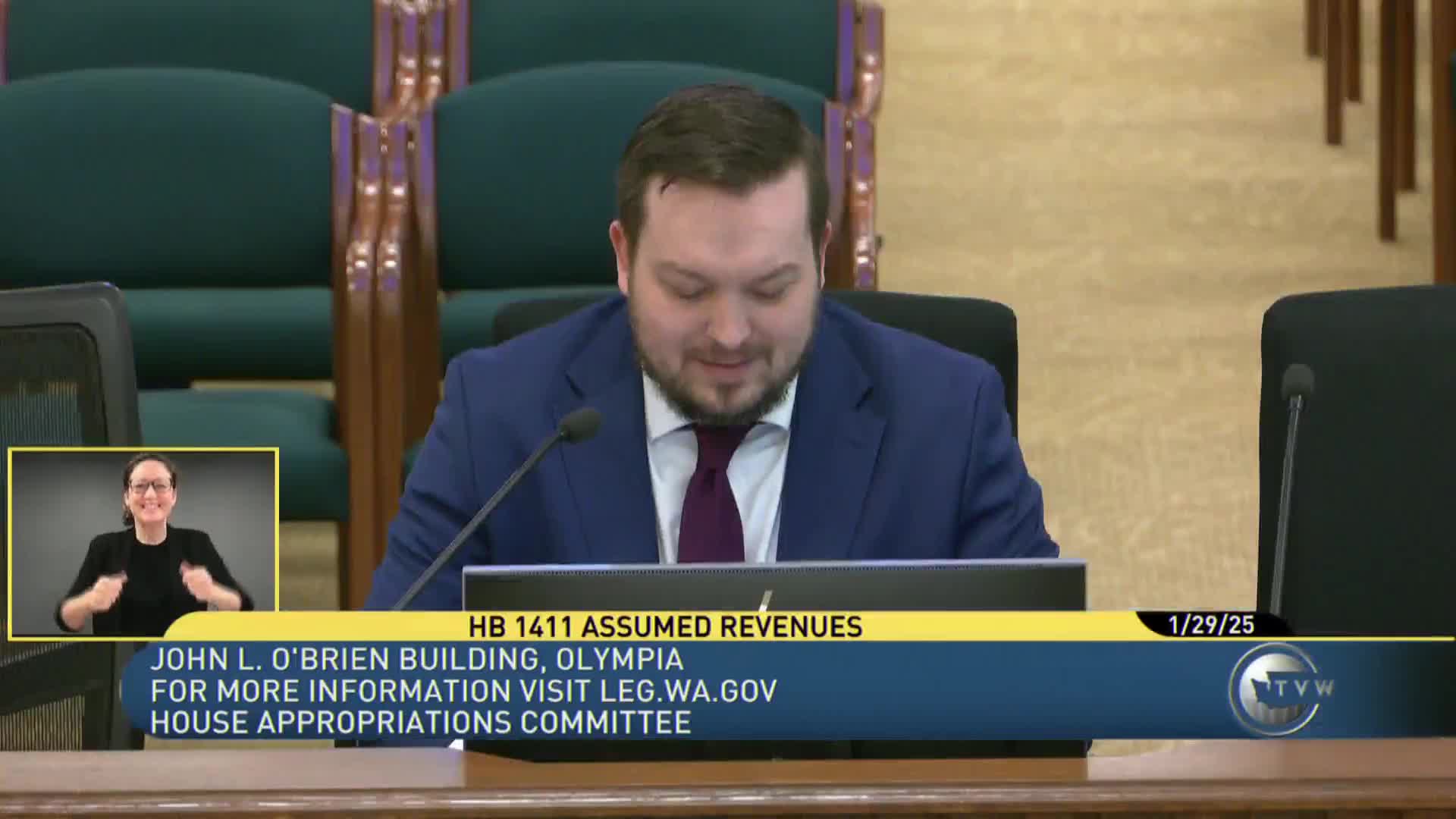Article not found
This article is no longer available. But don't worry—we've gathered other articles that discuss the same topic.
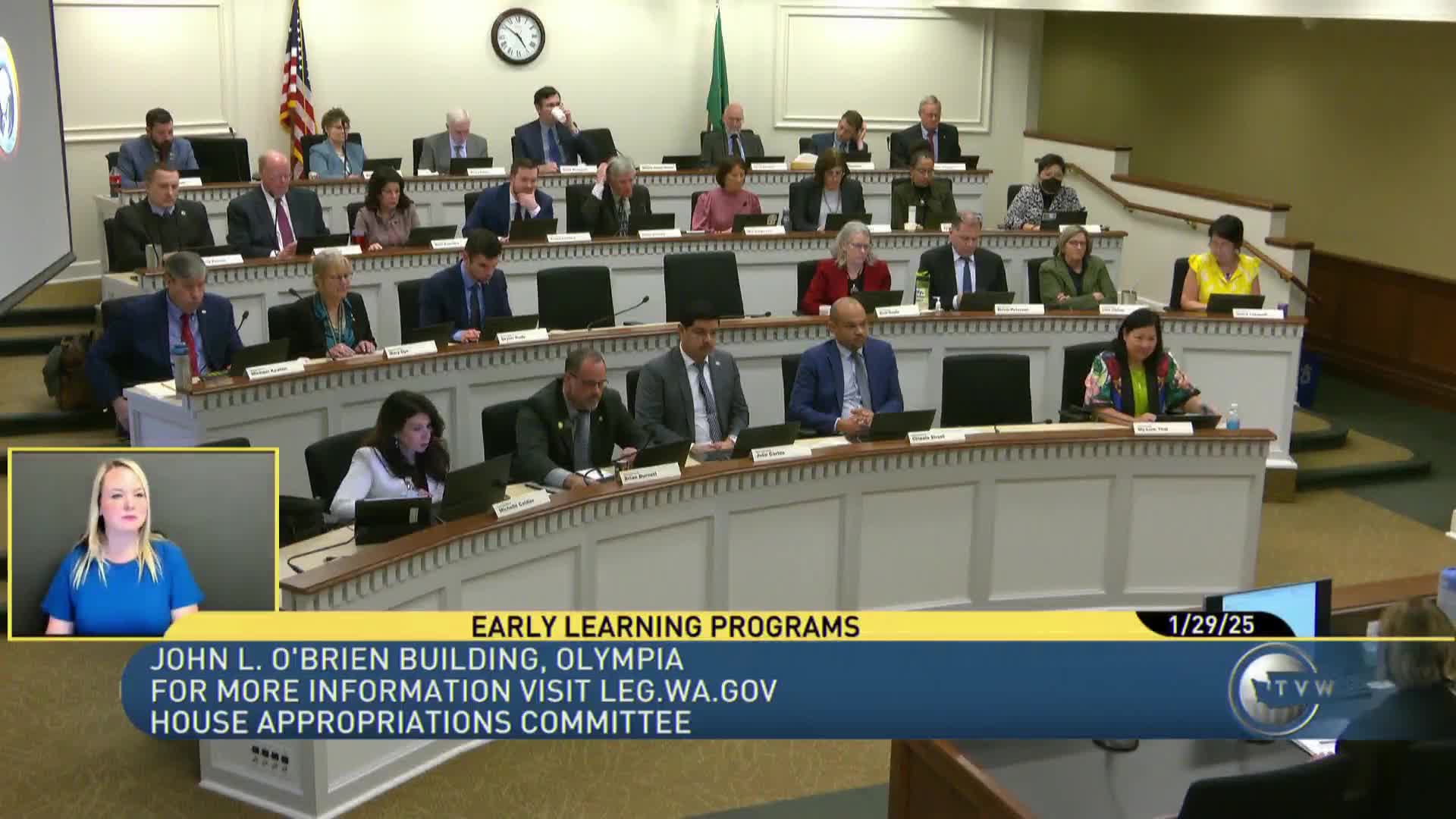
Appropriations staff outline early learning budget: ECAP slots, federal stimulus tail‑off and working connections expansion drive costs
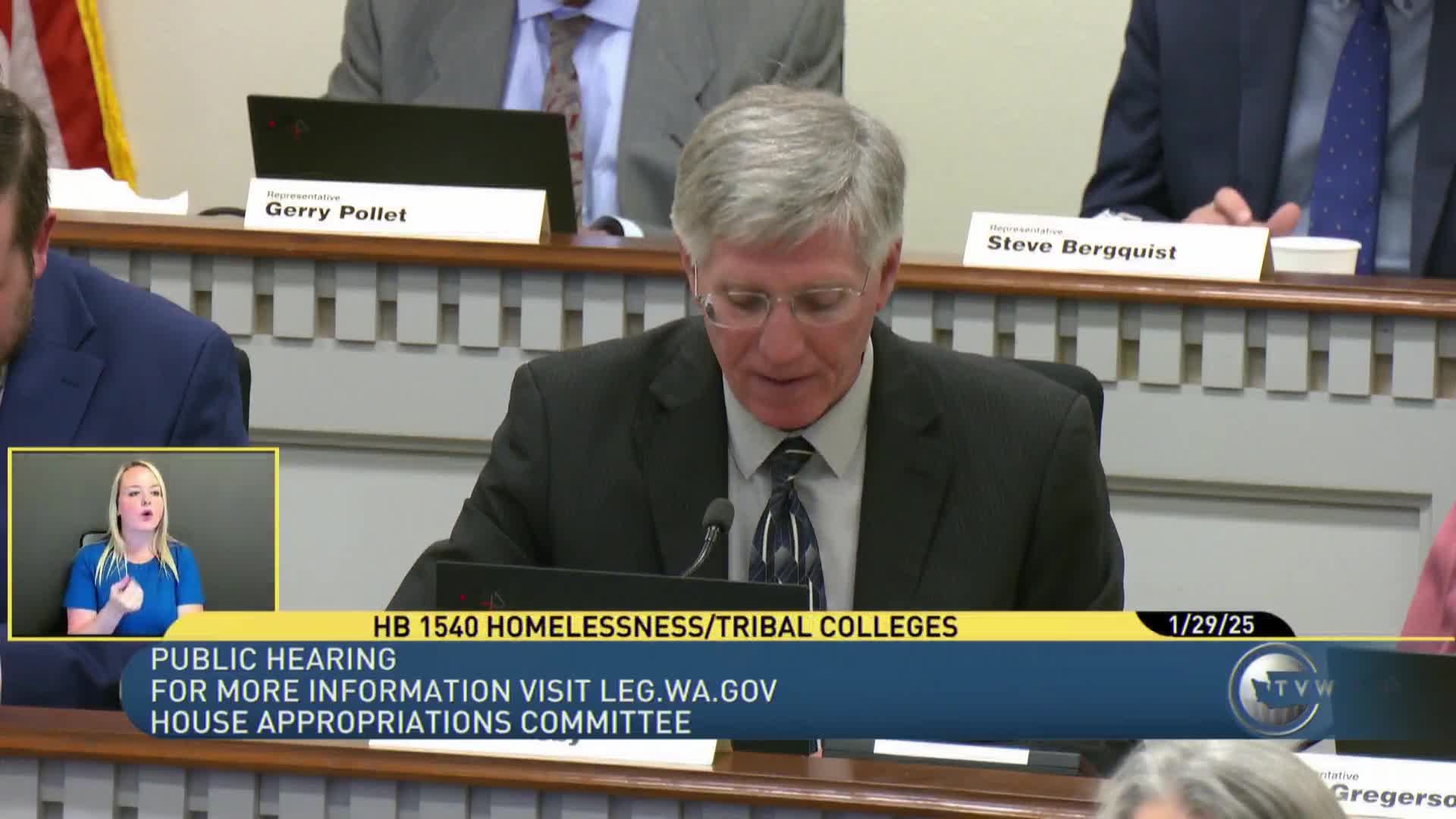
Bill would add Northwest Indian College to student homelessness program; agency endorses inclusion and estimates grant cost
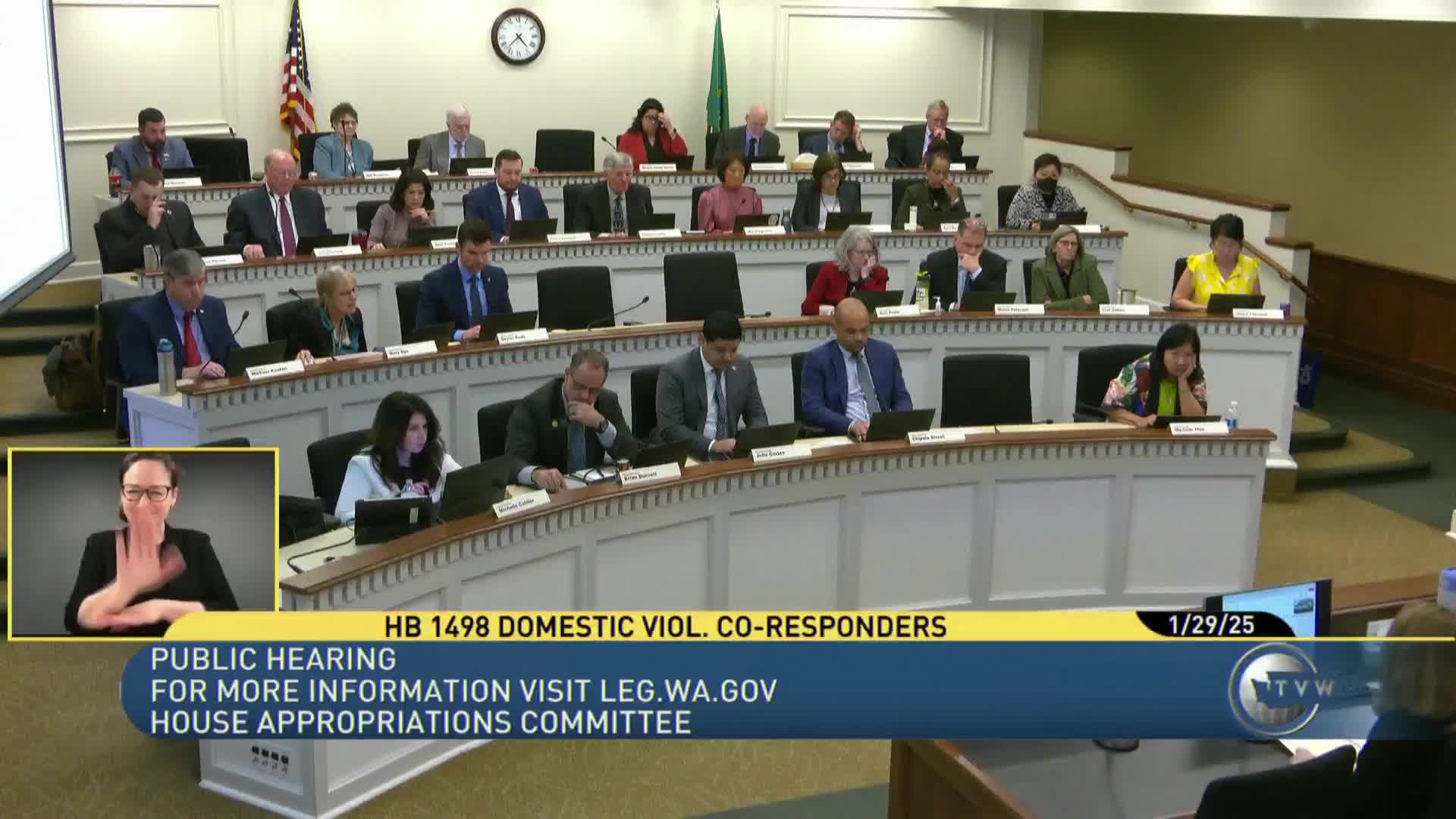
Bill would add $100 marriage‑license fee to fund domestic violence co‑responder grants; advocates and providers outline benefits and concerns
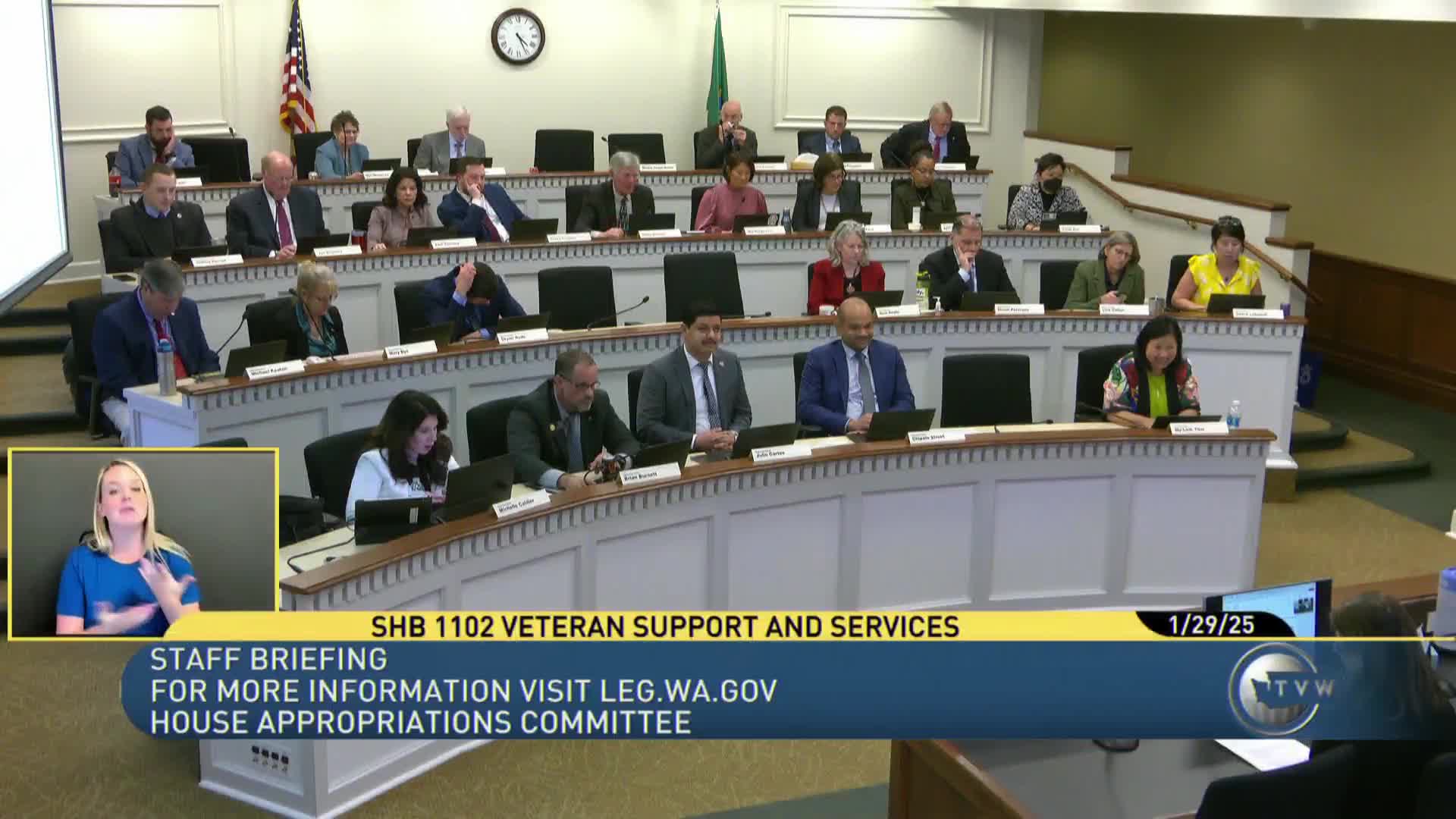
Substitute HB 1102 would expand veteran service officer program; staff estimate staffing and IT costs
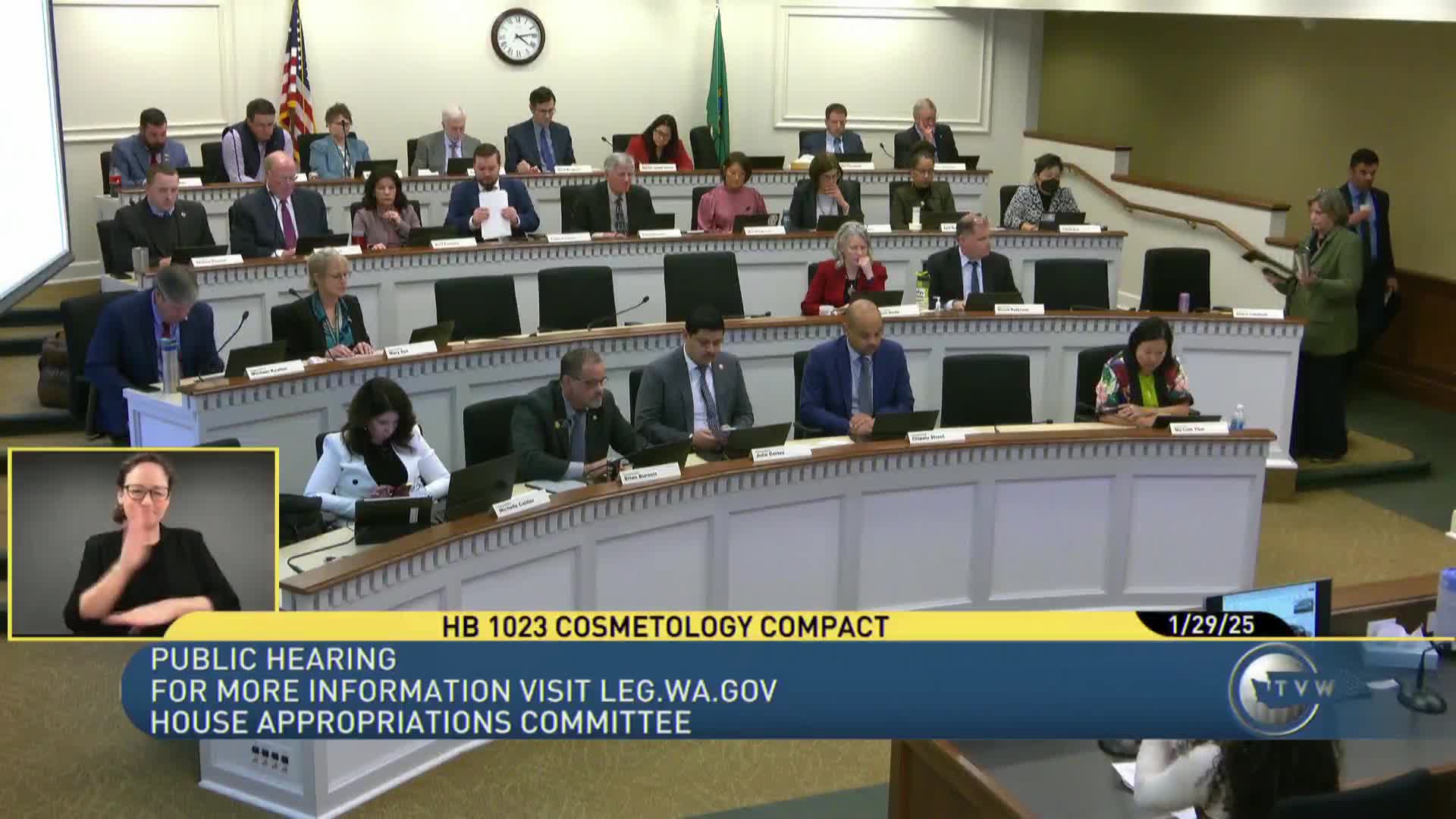
Cosmetology licensure compact draws mixed testimony as committee reviews fiscal note and scope
